Flexitarianism spurs the rise of meat-plant blends
11 Apr 2020Plant-based eating is a major trend, but while consumers may want to increase plant consumption, most are not willing to shun meat entirely. Now, a growing number of manufacturers is introducing products that combine the best of both.
According to Swiss investment firm UBS, the global value of plant-based meat alternatives grew to $4.5 billion by 2018, and it expects this to rise to $85 billion by 2030 – but in Europe and North America, plant-based foods are not yet replacing a large amount of meat. Nevertheless, numerous surveys suggest consumers want to cut back, and are trying to include more plant-based foods in their diets, such as grains, legumes and vegetables.
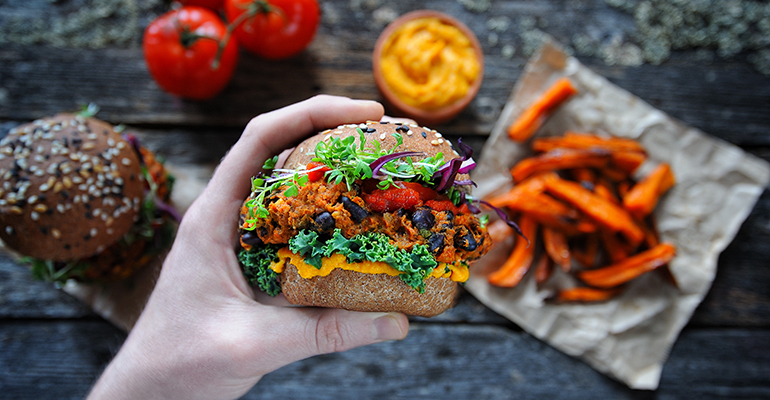
Hormel Foods’ Applegate brand is the latest to enter the market with a range of blended burgers, which could appeal to this dichotomy. Its new products are based on a mix of either organic beef with cauliflower, spinach, lentils and butternut squash, or organic turkey with sweet potato, great northern beans, kale and roasted onion. Later this year, it intends to launch two varieties of blended meatballs, with pork or turkey and vegetables mixed with rice or lentils respectively.
The blended products follow on from other launches, such as Debbie and Andrew’s Flexilicious brand in the UK, which makes a variety of beef sausages with 40% beef, blended with vegetables and legumes, and in the US, Raised and Rooted blended burgers from Tyson Foods and Perdue’s blended chicken and vegetable nuggets, tenders and patties.
But while the blended sector is doing something new in its overt marketing of such products, the concept of blending meat and vegetarian ingredients has been around for years.
So-called meat extenders traditionally have been used to cut the costs associated with meat ingredients, but this is no longer manufacturers’ only concern. Soy-based binders and fillers were formerly among the most common vegetarian ingredients for blended products – and especially low-fat commercial meat products – but nutritional quality and taste now are coming to the fore, with manufacturers turning to other pulses and lower protein ingredients like cereal grains and vegetables, as well as cheeses for flavour.
Nutrition is a major driver. Pea specialist Roquette, for instance, is tapping into the trend with pea fibre that can be injected into whole muscle meat to create a tenderer, juicier steak, or used in minced meat or emulsified products. Along with a range of ingredients like lupine, fava beans, wheat and rice, peas and other pulses and grains are able to cut the saturated fat content of meat while also making it more succulent.
Scelta Mushrooms provides another option with mushroom ingredients intended for use in traditional burger patties to add juiciness, and to improve nutritional profile and flavour while cutting costs.
At the moment, the blended meat concept is most well-established in the United States, but it is taking off in Europe as well. As more consumers look for ways to enjoy more plant-based foods without necessarily giving up meat, the space also avoids the technical challenges of using plant ingredients exclusively to mimic the taste and texture of meat, offering consumers a tasty – and potentially healthier and more environmentally friendly – alternative to traditional meat.
Related news

Plastic packaging reduction requires industry rethink
6 Jan 2023
The food and beverage sector is calling for industry-wide collaboration and business model updates to reduce the environmental impact of plastic packaging.
Read more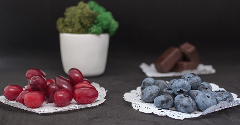
Misleading nutrition claims mask true sugar levels in baby food
5 Jan 2023
Some baby and toddler food and drink products, sweetened with fruit concentrate, contain up to four teaspoons of sugar per serving yet are marketed as having ‘no added sugar’, according to a survey by Action on Sugar.
Read more
Asian beverage brands deal with rising costs
4 Jan 2023
Decreasing bottle sizes or increasing prices? Asian beverage brands are finding “creative approaches” to manage rising costs, according to industry analysts.
Read more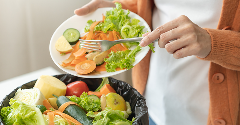
Preserving the freshness of food to fight waste
3 Jan 2023
Several companies are producing products that absorb ethylene, the hormone that causes food to ripen, in attempt to reduce food waste.
Read more
Value-seeking US consumers cut back on food spending
2 Jan 2023
Cheaper items, smaller sizes, and shorter grocery lists: inflationary effects coupled with a global long-term recession are set to continue shaping food spending habits, according to a recent Rabobank report.
Read more
Opportunities grow for lower-caffeine coffee
23 Dec 2022
Many consumers want the mental focus of caffeine without the jitters, prompting a wave of product development such as “half caffeine” ground coffee or ready-to-drink (RTD) cold brew blended with relaxing botanicals.
Read more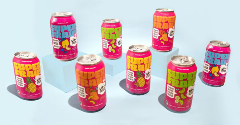
Superfrau upcycles liquid whey for energy drinks
22 Dec 2022
US company Superfrau turns surplus whey into sustainable, upcycled-certified dairy products for the recovery drinks market.
Read more
Malaysian brand Nanka brings jackfruit range to Europe
21 Dec 2022
Malaysian brand Nanka is expanding to new Asian and European markets with its fast and ready-to-eat plant-based products based on jackfruit.
Read more
Is the UK on target to meet its 2025 Plastics Pact?
20 Dec 2022
Major food industry players, including Arla, Kerry, PepsiCo and TerraCycle, have signed the UK’s voluntary Plastic Pact to reduce plastic from the supply chain – but are they on track to meet their targets?
Read more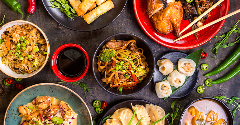
Chinese food brand wants to give customers ‘the full experience’
16 Dec 2022
Food brand Xiao Chi Jie is revamping Chinese cuisine for the modern American consumer. The Washington-based company sells regional Chinese specialties like soup dumplings, noodle kits, and barbeque skewers direct-to-consumer in the US.
Read more
